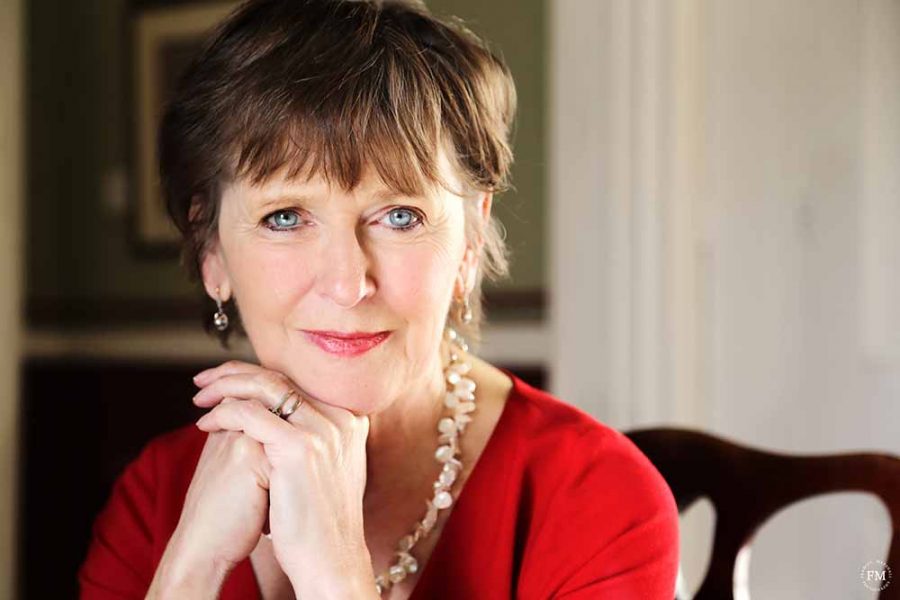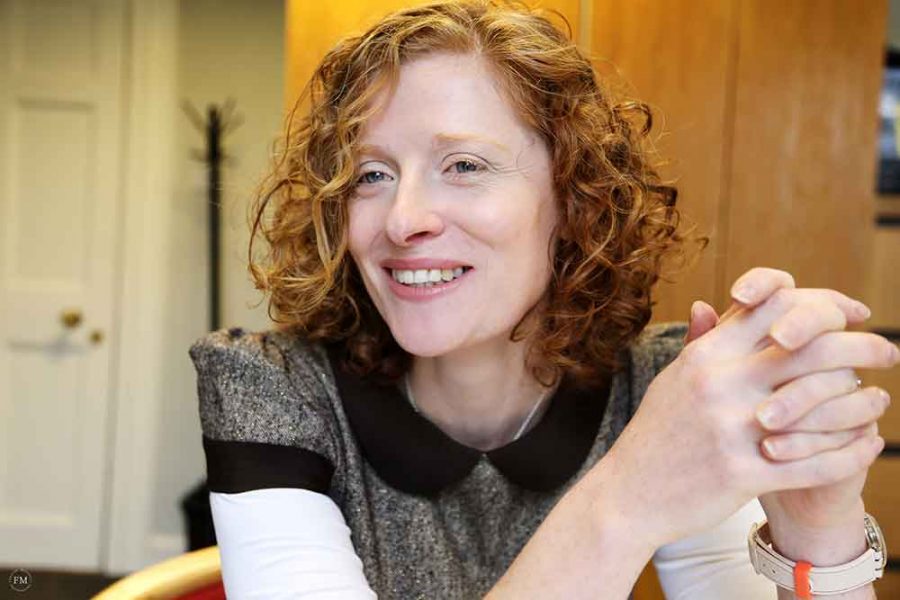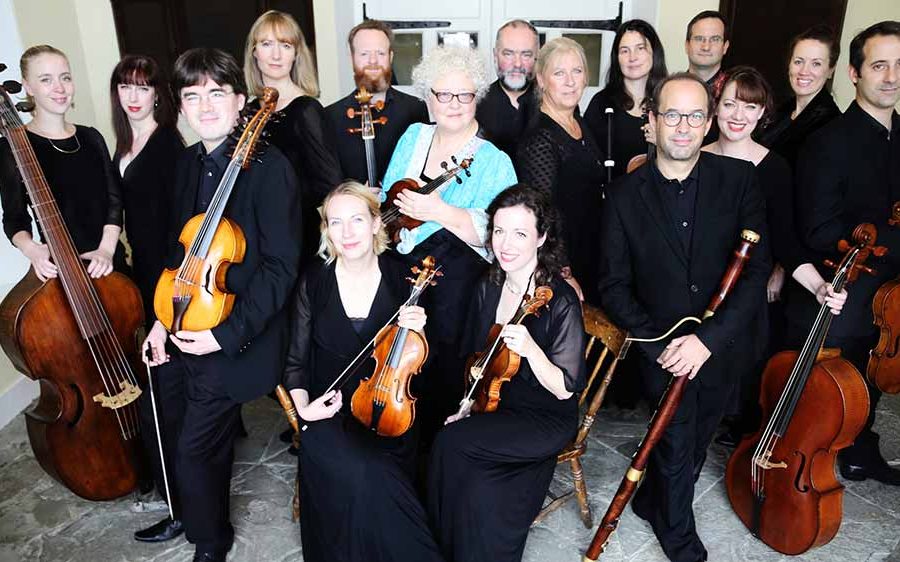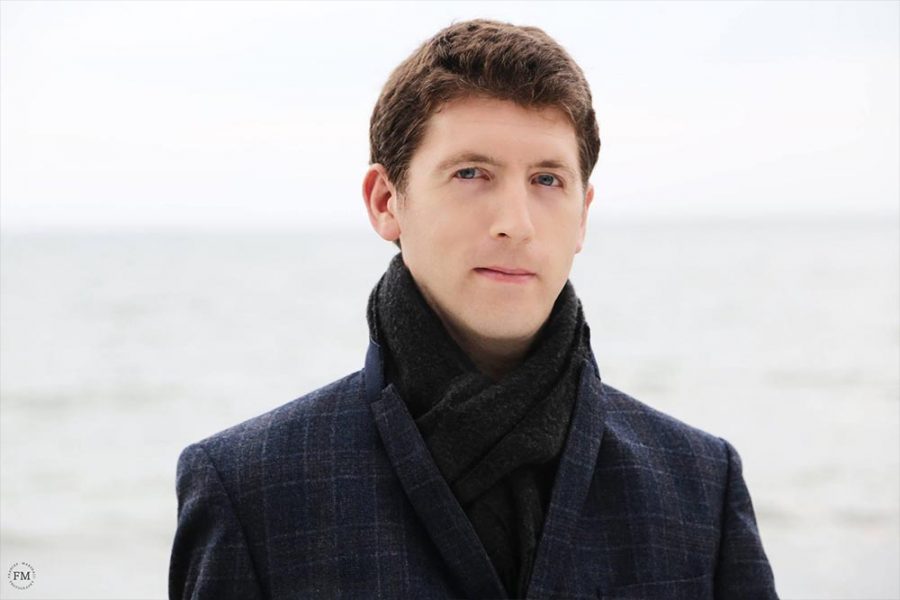Achieving Against Adversity: Simon Taylor

October 2018
Interview and photos by
Frances Marshall
With an industry plagued with budget cuts and financial crashes, Simon Taylor has managed to lift some of Ireland’s largest classical music institutions above the water to safety.
His ability to shine the spotlight on aspects that need fresh perspectives, has Taylor in the prestigious position of CEO in Dublin’s renowned National Concert Hall. I met with Simon in his office to discuss his journey to the top, how the classical music business profits today and the importance of maintaining accessibility to high standards.
It dawned on me that to make a living from this instrument was going to be virtually impossible."

You’re not from a musical family, how did your passion evolve and who nurtured your interest?
I owe that to my first teacher Joseph Groocock, he was a great organist and Bach lover. I was lucky enough to study with him from childhood until the age of 17, he was so inspirational. My father was a Church of Ireland clergyman and Frank Hughes, Head of music in Wesley College was the wonderful church organist. So I had all this around me and that’s where my interest sparked – and then I discovered the classical guitar!
How did your career in music start?
I was an aspiring classical guitarist and when I finished school I went to London, as the guitar wasn’t taught in the academies in Dublin at that time. I was accepted to the London College of Music, which was run by William Lloyd Webber, father to Andrew and Julian. I had a wonderful teacher there, Oliver Hunt, who was a student of the renowned Julian Bream, one of my musical idols. Oliver had developed rheumatoid arthritis and so couldn’t play anymore himself, but this actually made him a brilliant teacher as he was constantly teaching you how to play – to think for yourself – rather than merely by demonstrating.
When did you decide to move from performance to administration?
Growing up in the 70’s as a Dublin-based guitarist, you think you’re going to be a superstar purely because very few people played it. When I arrived in London I got a big and necessary shock – there were hundreds of players and the guitar was at an all-time high! Julian Bream and John Williams were at their peak and had really popularised the instrument and the Wigmore Hall had a guitar concert nearly every week. It dawned on me that to make a living from this instrument as a performer was going to be virtually impossible.
I studied in London for 4 years and I absolutely loved it, but then moved back to Ireland and sought out any performances I could get. I’m a huge believer in taking your opportunities as they come along – you can’t wait for the phone to ring, you have to make work for yourself. So, as well as performing, I had various teaching jobs – one of which was at Newpark School, Blackrock. I had also already become involved in various administrative roles, such as concert promotion, running a guitar festival and a guitar society. So when the opportunity came up to run a new music centre at Newpark, I grabbed it by the neck and loved every minute.
After running a music school for 8 years how did it change your views on music education?
When I left Newpark Music Centre we had grown the school to 25 teachers with 700 pupils and had started the first jazz education programme in Ireland – I am very proud of that. The ethos of Newpark was something that I’ve definitely carried forward, the ethos of ‘music for all’. We must make music accessible to everyone and teaching music should not be about creating virtuosi, but enriching the individual’s life.
In my job today, I am very lucky to meet and listen to the greatest performers in the world, but there’s still something special about seeing a student struggle with the simplest piece and then finally working it out and getting it to performance standard. Music education is about unlocking your brain in every area. If we want to lift the education standards in this country, music needs to be available to every child and we need to make sure that teachers, particularly at primary level, have the skills to do it.
We must make music accessible to everyone and teaching music should not be about creating virtuosi, but enriching the individual’s life."

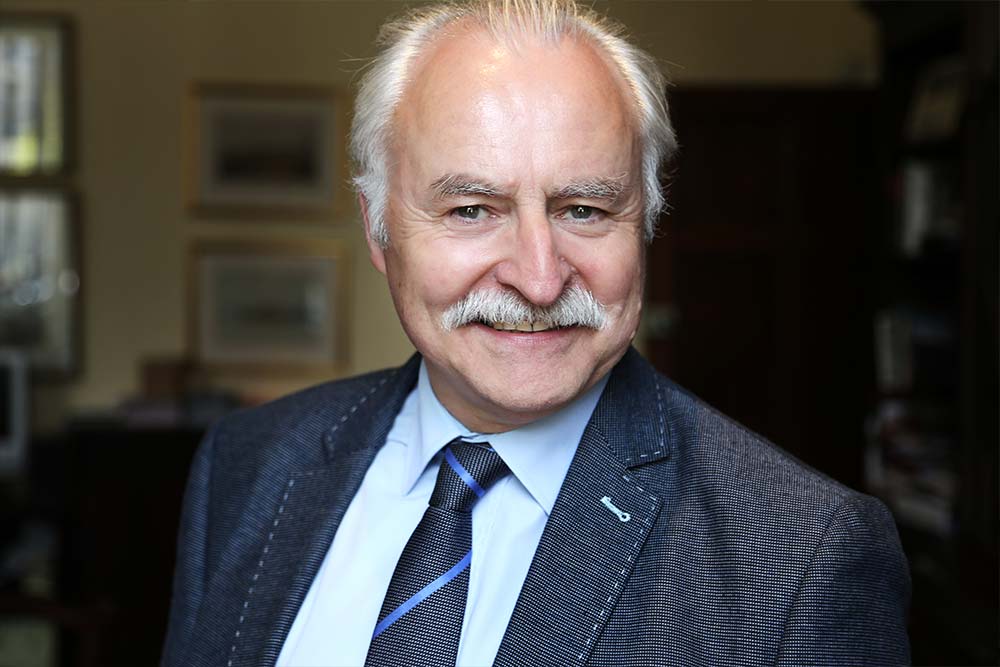


I had gone from being responsible for a community music school to being responsible for the entire music performance output of RTÉ in a couple of years. It was a baptism of fire..."

Tell us about how you started with RTÉ.
It was as simple as seeing an advertised post for an administrator position for the RTÉ Concert Orchestra. At that stage I had no experience in orchestra management, so I asked myself: what does it involve? I broke down the main aspects of the job description, the first was programming and as a musician I had reasonable knowledge of orchestral music. The next was people management, which I could do. There was promoting and marketing which I had also done etc. – so I applied somewhat speculatively and I got the job!
Looking back RTÉ was in a golden era. The orchestras were in expansionist mode and the Concert Orchestra had become much more public facing with Proinnsías Ó’Duinn at the helm. I was very lucky to get in during that time.
There were then huge cuts within the broadcasting company, why did they happen and how did you handle it?
In 1990 there was disastrous Broadcasting legislation enacted which capped RTÉ’s commercial income. The idea was to address what was seen as RTÉ’s monopolistic position and to make space for independent broadcasters – which is understandable – however, it wasn’t thought through and it did a lot of unintended damage. It impacted the orchestras hugely and all expansion plans were put on hold. The Vanbrugh String Quartet’s contract was reduced, the chamber choir was axed and retaining two orchestras was a real struggle – it was a very tough time.
It was at this stage that my then boss left and I became Head of orchestras and performing groups, and I have to admit it wasn’t easy. I had gone from being responsible for a community music school to being responsible for the entire music performance output of RTÉ in a couple of years. It was a baptism of fire, but an extraordinary learning experience.
What was your biggest achievement with the Irish National Orchestras?
Today it may not sound like a big deal, but at the time the biggest accomplishment was getting both orchestras on CD. Neither orchestra had a CD to their name at that stage so we eventually did a deal with Naxos – not a label known for paying enormous fees, but its distribution was worldwide and that’s what I was after.
The biggest challenge was to convince the players to take part for only a small additional payment and then to convince RTÉ to do it for nothing! It was all about getting the orchestras on the map. It worked really well – we made over 50 recordings for Naxos – and we subsequently completed a series of recordings of Irish composers with Irish artists as well.
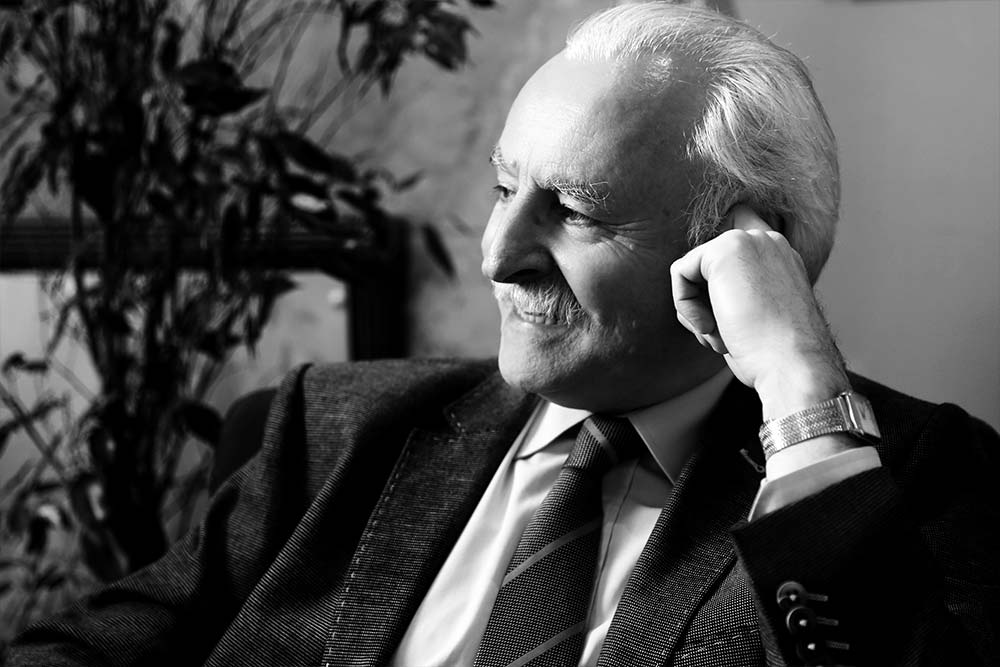

...I see it as a blessing. We were about to spent €300 million to build a 2,300 seater symphony hall – today we simply wouldn’t fill it!"

How has that side of the industry changed?
When I was starting out, you did concerts to sell your recordings. Now you do recordings to sell your concerts. Unless you’re U2, the recording has become an expensive calling card and the live concert is now where you make your living.
Happily for someone who runs a concert hall, no recording comes close to the live performance and this is where the future lies. Thankfully too, humans are social animals and a concert experience is more than just the music. For me as the person running the NCH, I have to be aware that it’s about every aspect of the audience experience – the ease of buying tickets, the website, the restaurant, the front of house staff, the bar service, the air-conditioning and so on. We need to always make sure that watching the performance on YouTube or listening to a CD isn’t an option that a potential audience member will choose!
Tell us about your journey to becoming CEO of the National Concert Hall.
After RTÉ I went to work for BBC in Belfast. I was heavily involved with the Ulster Orchestra, Radio Ulster and Radio 3. It was a really interesting and different experience and I was there for 7 years. I then became CEO of Bournemouth Symphony Orchestra and I loved it. I worked with great people and it’s a fine orchestra with a great tradition. My wife and I were were very happy living there too: Dorset and the south west of England is a very special part of the world.
But then I got a phone call to say that NCH were looking for a new director and I just couldn’t resist. If ever there was a job I’d move back to Dublin for, this was it.
You took this position at a very difficult financial time in Ireland. Tell us more about how you managed to keep everything afloat.
Yes, the timing wasn’t the best. I came into the position in 2011, which was post crash. The redevelopment plans for the NCH had all been shelved, which was tough for everyone, and the funding had been hugely cut. It has been creeping back since 2015, but we’re still 30% behind 2008. Our sponsorship circumstances also changed dramatically. Before the crash, companies were literally throwing money at you and that dried up overnight. So financially, it’s been a challenge. But when I now look back on our halted expansion, I see it as a blessing. We were about to spend €300 million to build a 2,300 seater symphony hall – today we simply wouldn’t fill it!
Out of adversity comes good things. I decided to focus on broadening the appeal of the NCH, while also keeping its integrity. I have much admiration for my predecessor Judy Woodworth. She built the celebrity and orchestra series, which established a core classical programme – so I’ve thrown my energy into opening up more and expanding our audience demographic, whilst also continuing to develop the classical programme.
Speaking of finances, how does the NCH make its venues affordable for artists to hire?
The NCH is not actually that expensive, just compare us to the hire rates of other Dublin venues such as Vicar St., the Gaiety or the Bord Gáis Energy Theatre. We also provide a level of service and an all-inclusive facility which none of our competitors will match.
Our income derives from 30% state funding but 70% commercial income, so we obviously need to operate in an economically viable and sustainable way. However, it’s part of our public remit as a national cultural institution to be able to support the wider musical community, so all our decisions are not based just on financial factors.
In 2016 the Kevin Barry Room was reopened, what has been your vision for the space?
For the first time, the new space has given us a smaller venue that we can programme regularly. We made a conscious decision for artistic reasons not to hire the room out so that we can ensure a uniformity of standards, audience capacity and programming. I now do the programming and the aim is to support Irish musicians and classical chamber music in particular. However, we do team up with external parties, for instance in the current season we’re partnering with the National String Quartet Foundation to curate a series of string quartets; with ‘Sounding the Feminists’ for a series on female composers also with one of our residents, the Irish Baroque Orchestra.
If we want the Kevin Barry Room to be a leading venue for chamber music in Ireland, we have to control what comes in and be able to stand over the programme.
How do you go about programming the season and where do you look for inspiration?
A few seasons ago I added a choral strand to our International Concert Series, which includes visiting orchestras and recitals. These concerts appeal to the historic core audience of the NCH.
When programming in Ireland you need to be aware that there’s no equivalent to Gramophone or BBC Music Magazine here – there can be a certain insularity here that makes programming new artists a risky business. If you don’t get the audience the first time it’s very difficult to justify a return visit. Then there’s the paradox of avoiding repetition by inviting the same artists back over and over again – it’s a constant balancing act.
I try to mix the tried and trusted with new artists, it’s a matter of looking at who are the people making waves. So we will continue to have the London Symphony Orchestra and András Schiff, but you mix that with the new choral strand with groups like The Sixteen, which will build an audience for a particular genre. Likewise you have star names like Maxim Vengerov alongside brilliant rising artists who may be less well known.
...there can be a certain insularity here that makes programming new artists a risky business."

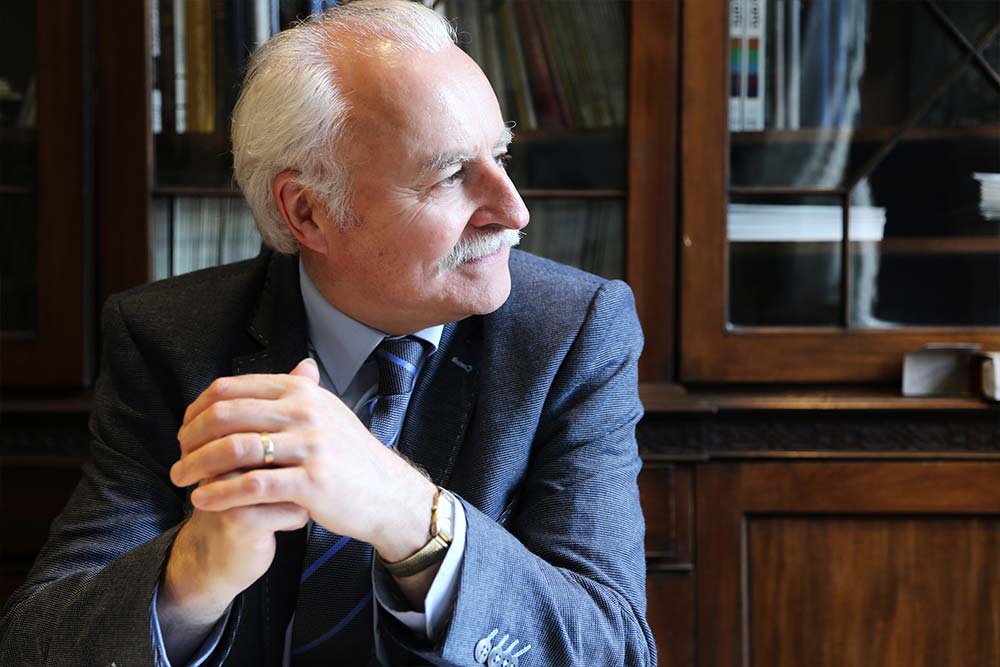

...there’s now a great opportunity to grasp this and demonstrate what can be achieved by an orchestra in the 21st century."

What’s an unexpected regular struggle you encounter?
One thing that always gets me is the VAT rate of 23% on the fees of visiting artists. To put it in context, the hotel trade protested a VAT rate of 13%, which was then cut to 9% and yet when I have the London Symphony Orchestra here staying in one of the hotels paying their 9% VAT rate, we’re paying 23% VAT on their fee.
Ticket sales are not VATable and therefore not recoverable, so it’s completely dead money. It’s a significant cost to us because when you look at a fee of €10,000 we have to pay €12,300. For the NCH that’s one issue, but for small festivals around Ireland that can be an extremely significant cost that may be a deciding factor in their programming.
With Ireland having the distinct disadvantage of little or no classical music agents, what is your advice to young emerging artists?
It’s a very small population so if you’re an agent for classical music in Ireland, there are very few venues, festivals and promoters to contact. There are a couple of people who do it, but it’s not really a big enough territory to make a living.
The more interesting and relevant challenge for an Irish artist is not about getting an Irish agent, it’s about how do they go about making a career and getting an agent internationally so they can get into the bigger markets. No matter how good a career you have in Ireland, it means nothing if you look to the UK or continental Europe. Getting on the international ladder – that’s the biggest challenge of them all.
What has led to the decision to move the RTÉ National Symphony Orchestra under the remit of the National Concert Hall?
To understand this situation we need to look at how the classical music business functions today. We forget it now, but originally radio was the only method outside of the live performance when you could listen to a full length symphony without a break – this was the whole rationale behind radio orchestras as part of public service broadcasting. Live radio was by far the most advanced technology and it was the great radio orchestras around the world that were at the real cutting edge of music making and bringing orchestral music to the masses. In a digital age, this has all changed.
When the CD revolution happened you could purchase any orchestra playing whatever you wanted. So it became much more difficult to justify the funding of the orchestra in a broadcast organisation.
From a philosophical point of view we have to ask, what was the function of the orchestra within this new context? The answer is that it’s about the live audience – ensuring the nation has access to live orchestral and symphonic performances of the highest quality – and supporting Irish musicians and music-making, including composers and flying the flag. So when the focus shifts to public facing live performances, the big game changing question is, why is the broadcaster paying for all of this? Is it not a wider, national responsibility?
In addition, RTÉ is financially in a very difficult place, there’s no investment going into the orchestra – they’re not doing any touring, there’s no educational programme – it’s the bare minimum and they’re not replacing people who are leaving, so the numbers of the orchestra are going down. Something significant needed to happen.
The NSO has been resident in the NCH since 1981, so it’s a natural step to suggest an agreement in principle that the orchestra to come out of RTÉ and come under the remit of the National Concert Hall. There is a strength in numbers in a combined entity too, as well as savings in terms of scale – we already have marketing, education and finance departments for instance. I think we have what the orchestra needs to prosper, but the most important thing is safeguarding the future of the NSO and that its national remit is properly underwritten and enshrined in legislation. It’s not just about performing at the NCH on a Friday night, it should be out there servicing the main cities around the country on a reasonably regular basis, with a thriving education and outreach programme also.
The NSO is not currently registering with a wide enough audience, so we need to change this. But in recent months we’ve seen the Taoiseach and other leading politicians saying they want to see two orchestras being sustained. This stuff never normally registers in the political mind so there’s now a great opportunity to grasp this and demonstrate what can be achieved by an orchestra in the 21st century.
What does the NCH have coming up that particularly excites you?
I programme our International Concert Series, our flagship classical music season, so inevitably those concerts are particularly important to me – for instance, the upcoming visit of Gidon Kremer and then the superb Emerson Quartet. And, as I’ve already mentioned, our new Kevin Barry Recital Room has allowed us to programme more chamber music, which is a personal joy too.
Our ‘Perspectives’ series focuses on contemporary artists across all sorts of music genres and that diversity is both really interesting and hugely important to the NCH. Over the next couple of months I’m looking forward to hearing the legendary jazz saxophonist Pharoah Sanders and the return of the extraordinary mandolinist Chris Thiele and Punch Brothers.
Our programme aspires to be ‘all music, for everyone’. That doesn’t mean ‘anything goes’, but rather that music should be available to everybody, that it shouldn’t be defined by genre – you should be able to listen to a Mahler symphony, Philip Glass, The Gloaming, Keith Jarrett or the Irish Baroque Orchestra – they’re all valid musical and artistic expression and one should never judge on the basis of what label is attached to them. It’s the old cliché that there’s only good music and bad music and that’s absolutely true. Today everyone has access to anything online and it can be difficult to access the brilliant standards, so what we’re trying to say is, ‘trust us, listen to this person, they’re worth hearing’.
But right at this moment, the most exciting thing on the horizon is definitely the redevelopment of the whole NCH site. We have been allocated €78 million by government under its national capital programme and the current plans involve a total refurbishment of the main auditorium, a new orchestra rehearsal studio and improved backstage and front-of-house facilities. Hopefully we will eventually get a 500 seater second auditorium too – a really top class space for an intimate experience of acoustic music of all genres. There isn’t a venue of that size in Dublin and it’s badly needed.
So with the new arrangements for the National Symphony Orchestra, with our ever-increasing family of resident artists and organisations and a diverse and outward-looking programming policy, I really hope our aspirations to create a true national centre for music will be realised in the coming years.
To find out what’s on at the NCH, Dublin: www.nch.ie
All images displayed in this article are subject to copyright.
Share this article


